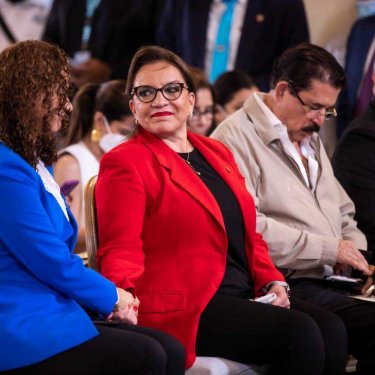New Honduran government is dismantling mechanism for protecting journalists

A wave of dismissals by the new Honduran government led by President Xiomara Castro is jeopardising the functioning of the national mechanism for protecting journalists in Honduras. Reporters Without Borders (RSF) condemns the use of such authoritarian methods in a country where the media continue to be subjected to attacks and violence.
“It is outrageous and incomprehensible that the protection mechanism, which already suffers from a severe lack of financial resources, is being dismantled and has lost more than two thirds of its employees,” said Emmanuel Colombié, the head of RSF’s Latin America bureau. “These staff cuts are having a dramatic impact on the safety of those who benefit from the mechanism’s protection measures. Honduran journalists work in an extremely hostile environment and are constantly subjected to threats and violence. It is therefore urgent and imperative to reinstate the dismissed staff or replace them with competent and trained employees, so that current and potential beneficiaries are not put in danger. President Xiomara Castro’s government has a duty to guarantee their safety by strengthening the mechanism.”
On 12 August, the new human rights minister, Natalie Roque, fired 14 employees of the National Protection System (SNP), the mechanism created in 2015 to protect journalists, human rights defenders and judges when they are in danger. Those fired include its interim director, Cristobal Martínez, and many other senior staff members. They suffered the same fate as José Antonio Velásquez, the head of the SNP’s prevention unit, and Danilo Morales, who had been the SNP’s director since 2018, who were fired on 22 April after being subjected to “repeated attacks” by the minister.
In just a few months, more than two-thirds of the SNP’s technical staff have therefore dismissed without valid explanations, generating an almost total paralysis in the implementation of its protection provisions.
These dismissals have come at a time great tension within the SNP. Last month, several of its employees accused Roque of subjecting them to psychological harassment and imposing a policy of “militarisation” by installing surveillance cameras and stationing soldiers at the human rights ministry’s headquarters, where the SNP – as offshoot of this ministry – is located.
The tension and unfair dismissals have also affected the functioning of the National Protection Council, the deliberative body tasked with overseeing, monitoring, supporting and evaluating the SNP. Some of the civil society organisations participating in the Council – of whom there were already very few – have pulled out temporarily to draw attention to their concerns and, in particular, to denounce the way the SNP is being dismantled. RSF is meanwhile aware of harassment and threats, especially on social media, targeting NGO representatives who have publicly criticised the dismantling of the SNP.
Xiomara Castro’s installation as president on 27 January gave rise to hopes that the SNP would be strengthened, but the opposite is now happening. RSF deplores President Castro’s political disinterest in strengthening an integral policy for protecting journalists – a disinterest sadly reflected now in the dismantling of the SNP, which puts those seeking and benefitting from its protective measures in great danger.
Last February, RSF published an unprecedented report on the mechanisms for protecting journalists in four Latin American countries – Honduras, Colombia, Brazil and Mexico. It drew attention to the SNP’s slowness to adopt measures, its shortcomings, and its lack of human and financial resources. And it included a series of recommendations for making the SNP more effective.
Honduras is one of Latin America’s most dangerous countries for journalists. Those working for opposition media or community media are often subjected to harassment, intimidation campaigns, death threats and physical violence, and some are forced to flee abroad. The security forces, especially the military police and army, are responsible for most of the abuses and violence against the media. At least two journalists have been murdered in 2022 – Pablo Isabel Hernández Rivera on 9 January and Ricardo Ávila on 26 May – but RSF has not as yet been able to confirm that their deaths were directly linked to their work
